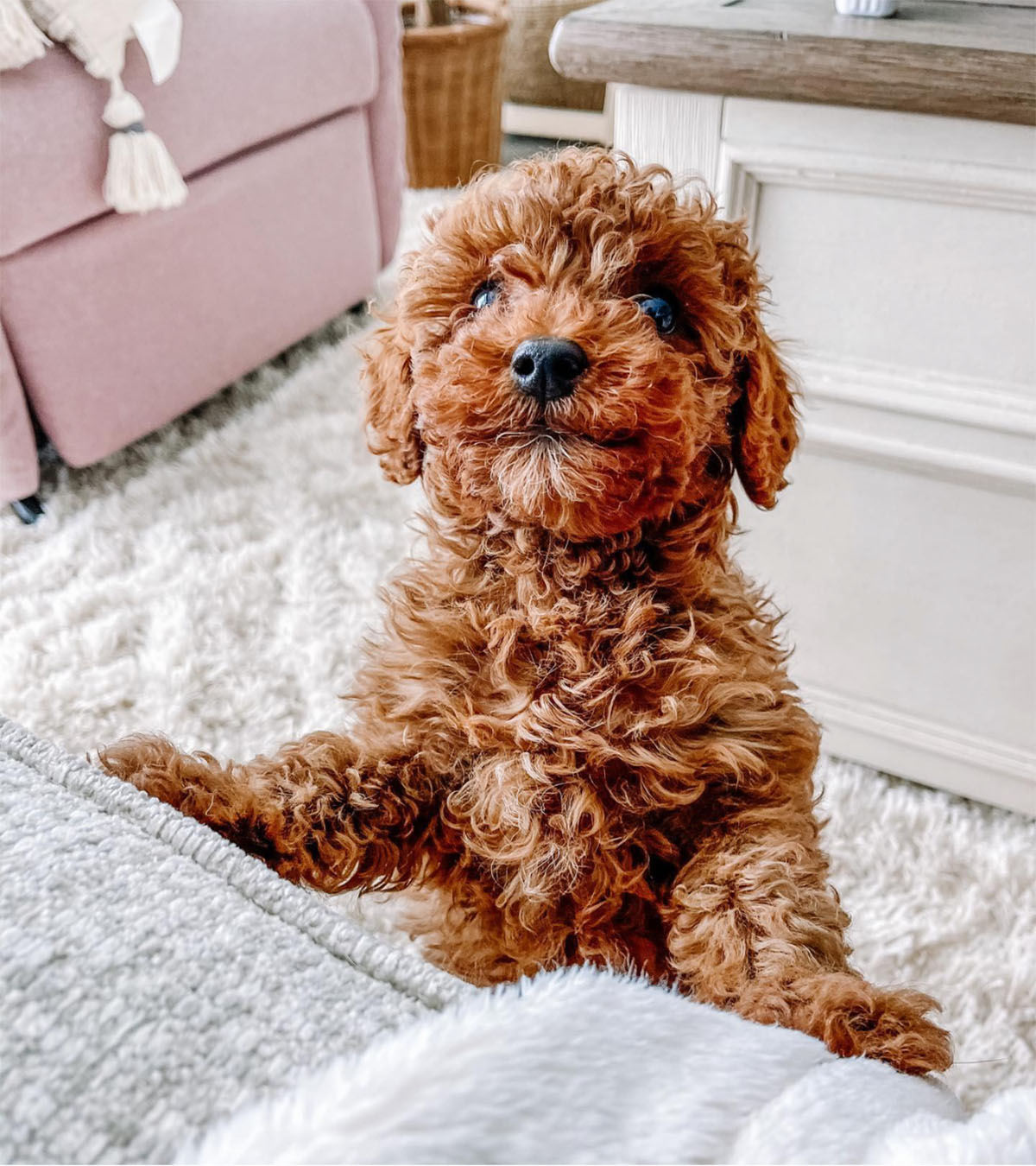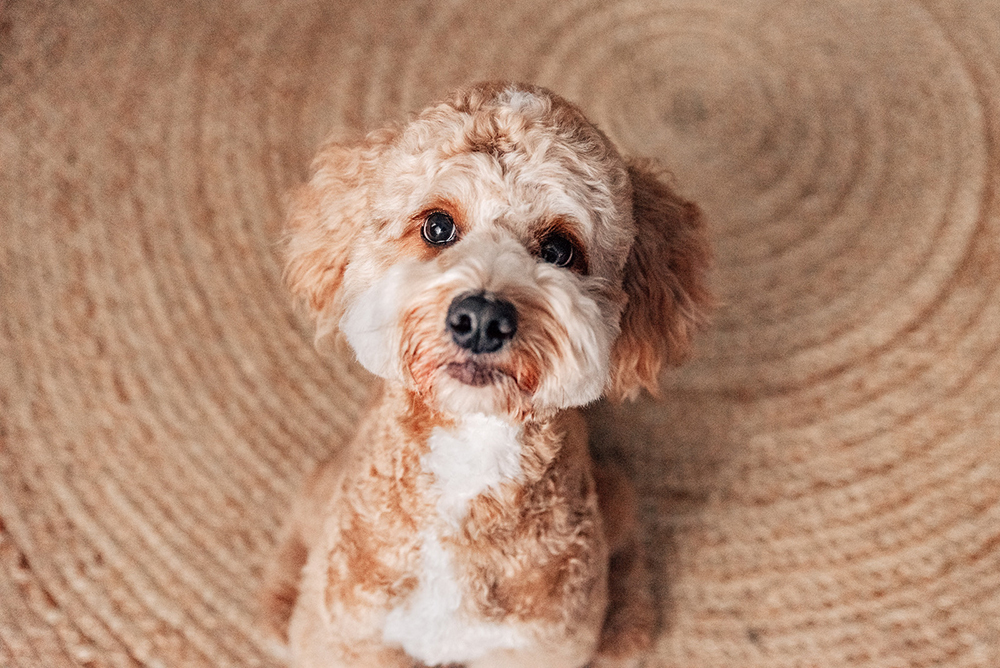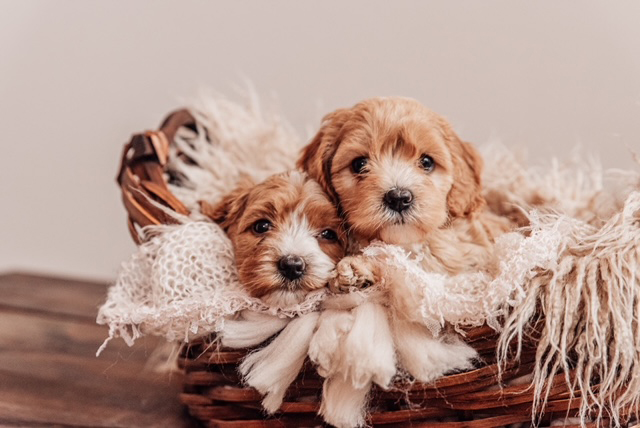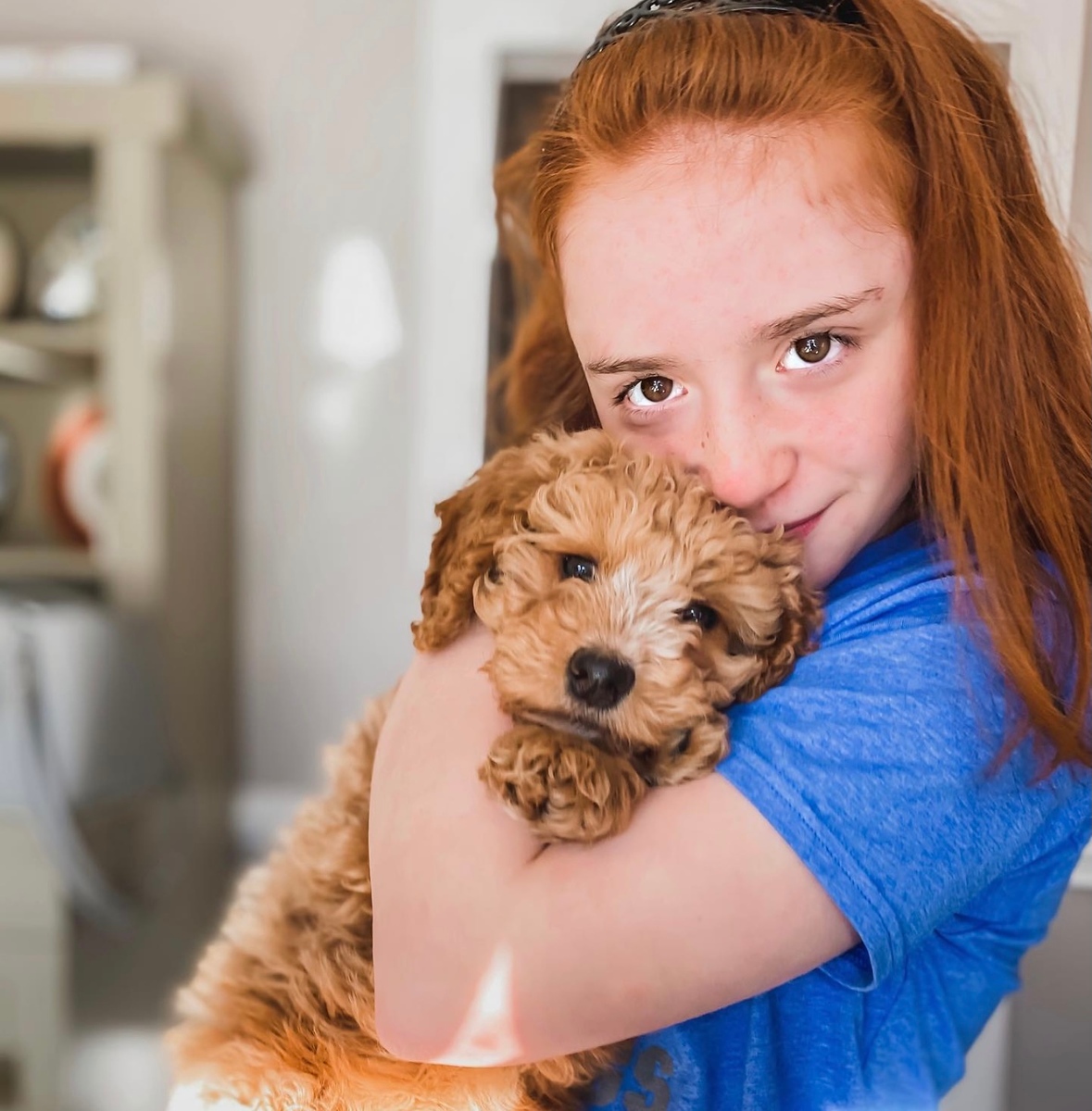
How accurate is temperament testing in puppies?
Thirty years ago, the US Department of Defense was using a puppy raising program to develop their military dogs. One of the procedures they used was temperament testing. The concept caught on with major service dog organizations, and soon private breeders were following suit. After all, if their mentors tested for puppy temperaments, it had to be included in best practices. Right?
Do puppies have personality tendencies from birth? Hmm, good question. Different breeds certainly do have their own traits. Border Collies, for instance, are innate herders. They need room to exercise and something to round up, like sheep, cattle or geese, even rabbits. Hounds want to run and aren’t suited to apartment living. Bloodhounds are excellent trackers because of their sensitive noses.
Nature vs nurture
Expect breed characteristics to shape a puppy’s general outlook. For instance, a CavaDoodle puppy is a combination of Cavalier King Charles Spaniel, Miniature Poodle, and Labrador. Our goal is to select for the best qualities of each breed. However, each individual puppy in a litter will develop his own particular personality. How much is hereditary and how much is because of environment?
Many studies of this question have been done. Ji Khalsa’s mission is to help develop responsible breeders (of whatever breeds). And she does intensive research. Ji wrote of several large-sample studies in her Midwoofery blog post of June 2020, Is Temperament Testing Really Worth the Effort? But the subject really has 3 follow up questions.
- If temperament testing isn’t helpful, then how can we predict?
- Can testing for temperament be harmful to puppies?
- How can we make sure that a puppy develops the temperament that we want?
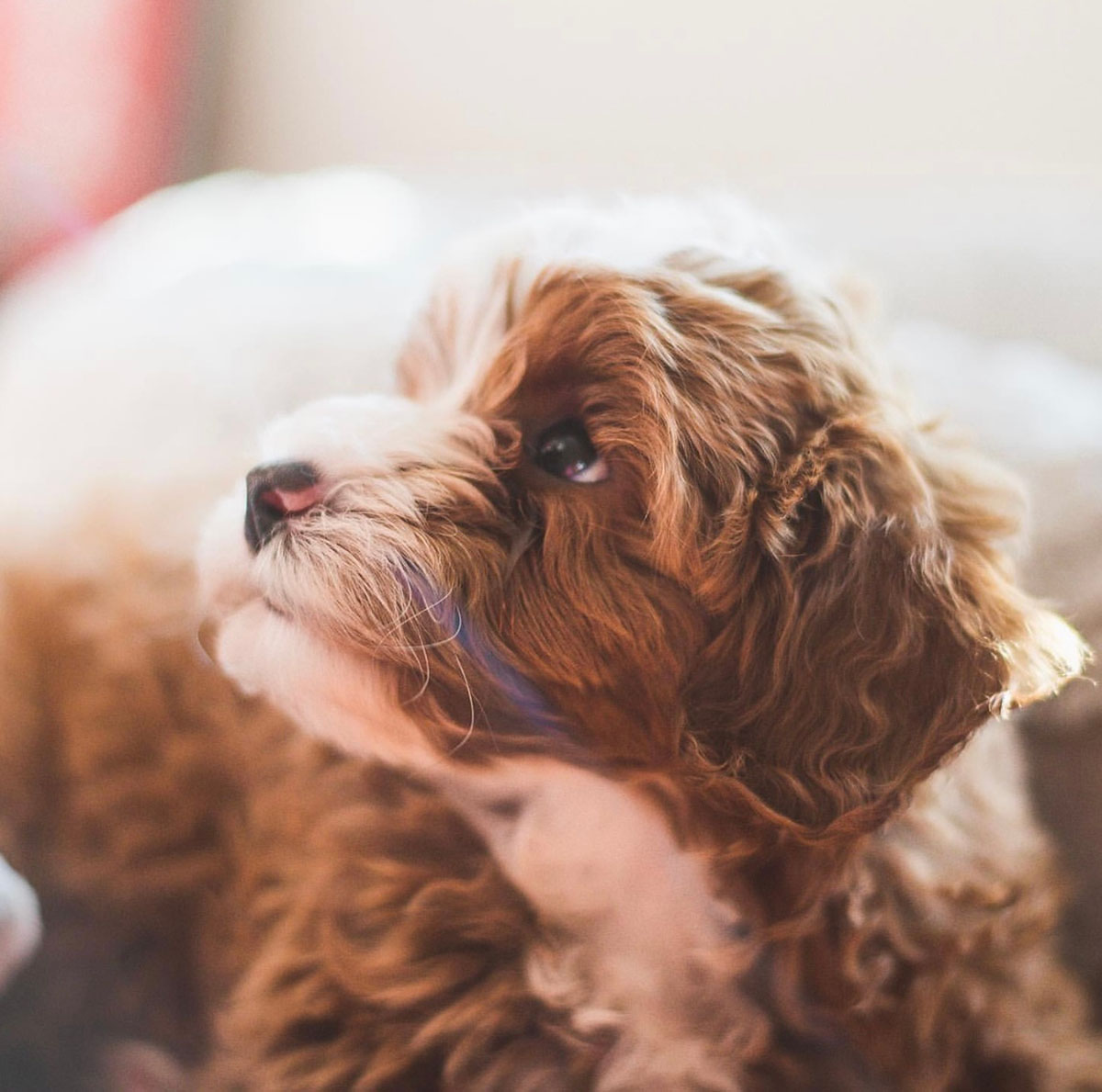
First, begin training early
Our puppies at Maple Hill Doodles begin ENS training (Early Neurological Stimulation) when they are 3 days old. Derived from the DoD ‘super puppy program’ mentioned above, ENS gently and briefly, once a day, introduces each puppy to situations unlike anything he would normally encounter on his own. After all actions are completed, the puppy goes back to being with his mom and littermates, just as usual.
Coupled with loving daily interaction, these gentle stresses at the neonatal stage make a lifelong impact. They enable puppies to mature into healthier dogs that handle life’s stresses better. Our puppies live with us in the house, so they’re used to all the normal activities of family life. They are unfazed by the vacuum cleaner, dishwasher, radio, thunderstorms, kids and other animals (we have chickens).
For a more inclusive explanation, here’s a seminar video on ENS by Dr. Carmen Battaglia.
These methods have shown that they help to produce dogs who have a greater ability to adapt to change during their lifetimes. They are more disease resistant, healthier overall, and have fewer personality problems. Rarely do we see a Maple Hill puppy who is fearful or abnormally destructive, because they are so interested in everything else that’s going on around them. There’s too much fun that they might miss!
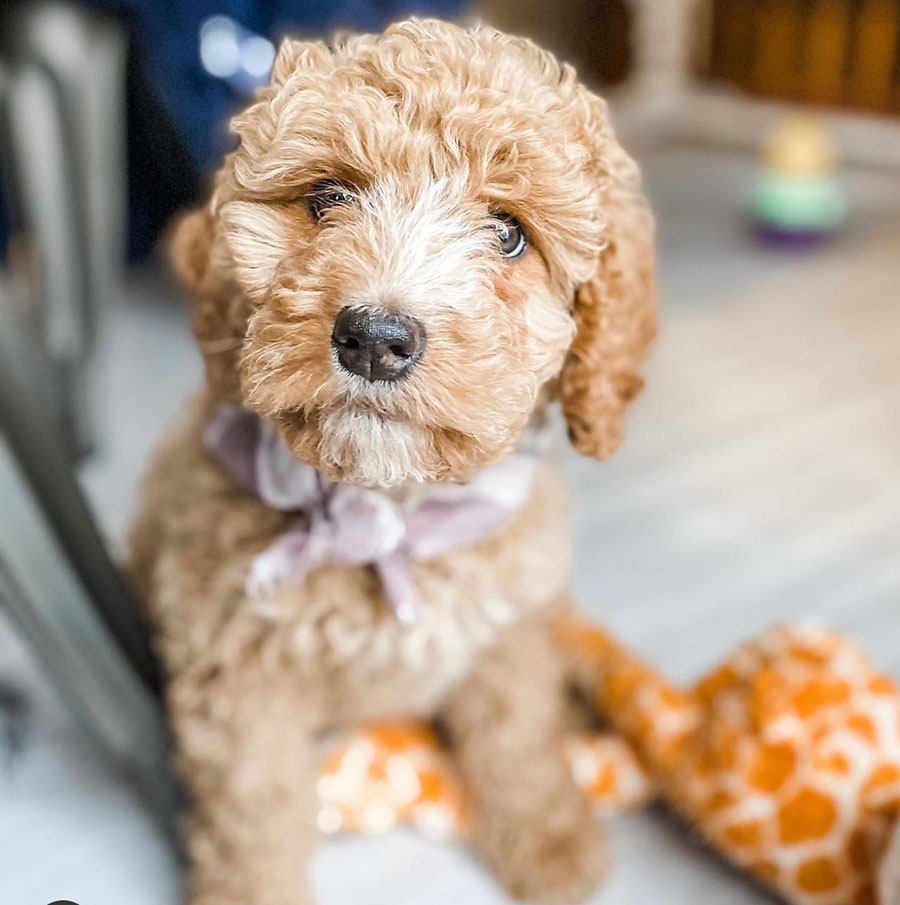
Next, consider who would be doing the testing.
In an online discussion of the Midwoofery blog post mentioned above, one of Ji’s readers pointed out that almost anyone can be a temperament evaluator. There are no standards or organizational oversights. It’s very much like cutting grass. Anyone with a mower can call himself a landscaper. But the homeowner may not realize that he’s a hack (pun intended) until the weeds take over and the shrubbery dies or goes untrimmed all year.
Unconsciously an unskilled temperament evaluator can project expectations on a puppy and skew the test results. Assigning a label (Family Pet, Guard Dog, Herding Dog) can lower expectations and influence the findings. Testing for a tendency can inadvertently set up a negative reinforcement of it. Let me explain.
Your new puppy should be able to meet new people with interest and confidence. When you introduce him to someone, you’re unconsciously wanting to make sure he won’t be afraid. And you’re apprehensive. Your puppy can feel that fear, and he’ll pick up on it. So inadvertently, you’re training him to be timid. You run the risk of setting up a new bad habit where there was previously no problem. An unskilled evaluator can produce the same result.
Is temperament testing
really worth the effort?
– Ji Khalsa –
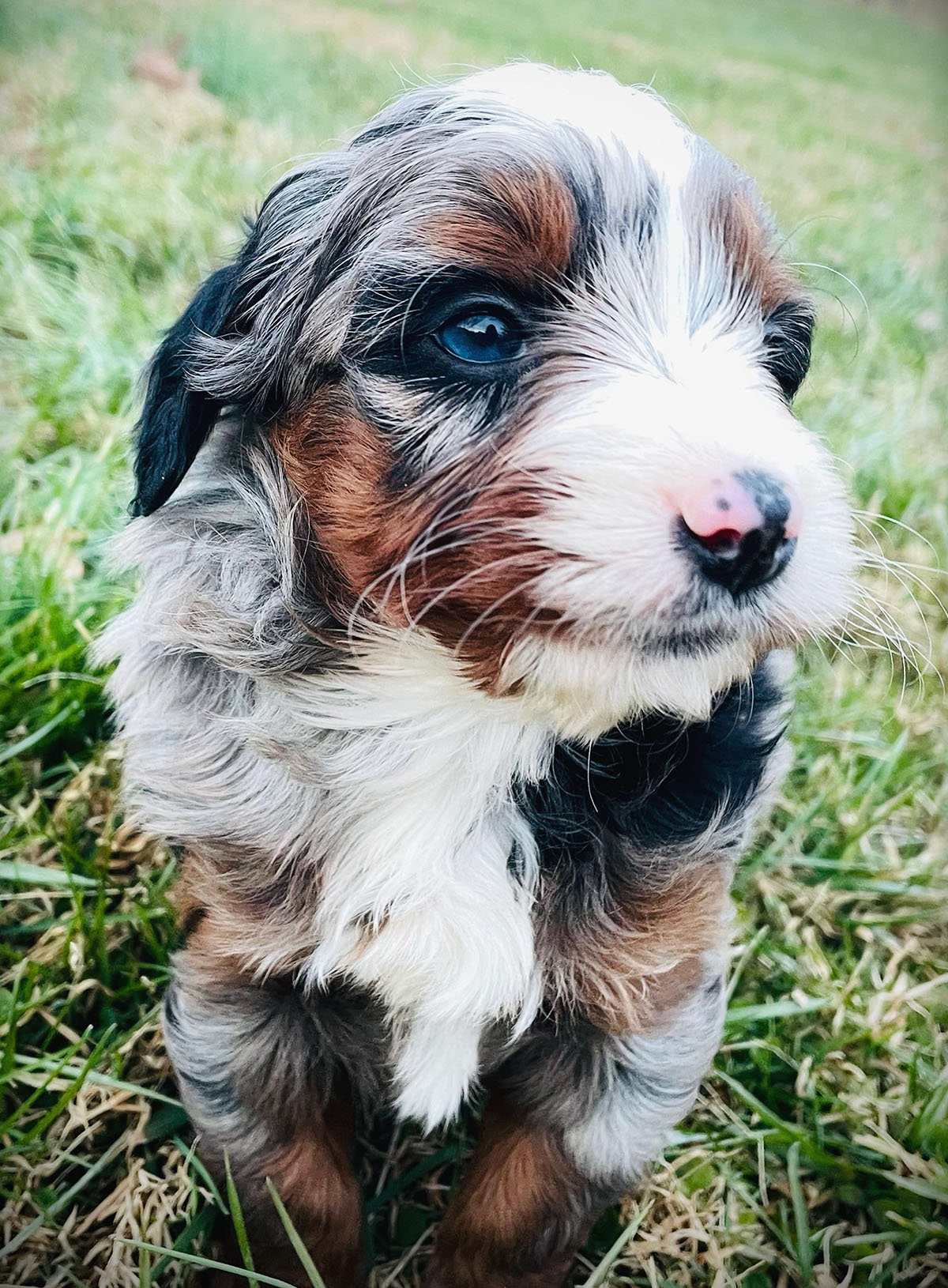
Finally, ask yourself why temperament testing is necessary.
In older puppies testing for temperament has its applications, especially for those destined to become service dogs. But in young puppies, why not do something fun instead? Puppies are a lot of work anyway (especially potty training). And they grow so fast, you don’t want to miss any of his ‘firsts’. He’ll be learning to be a much-loved member of your family, so enjoy every minute of it.
We sometimes hear that prospective families want to meet all the baby puppies before deciding on the perfect one. While that would be fun, these days it’s not a great idea. Check out our Visitation Policy for an explanation.
For one thing, young puppies are still developing their immune systems. Our puppies are in vibrant health because of their natural rearing (including feeding a raw diet), but we’d rather avoid introducing foreign germs to an entire litter or 2. And so would the other prospective families.
Secondly, as explained previously, Maple Hill Doodles puppies have already begun their early training, and are ready to advance. They’re smart and learn quickly. When you adopt a puppy from us, you become responsible for his continuing education.
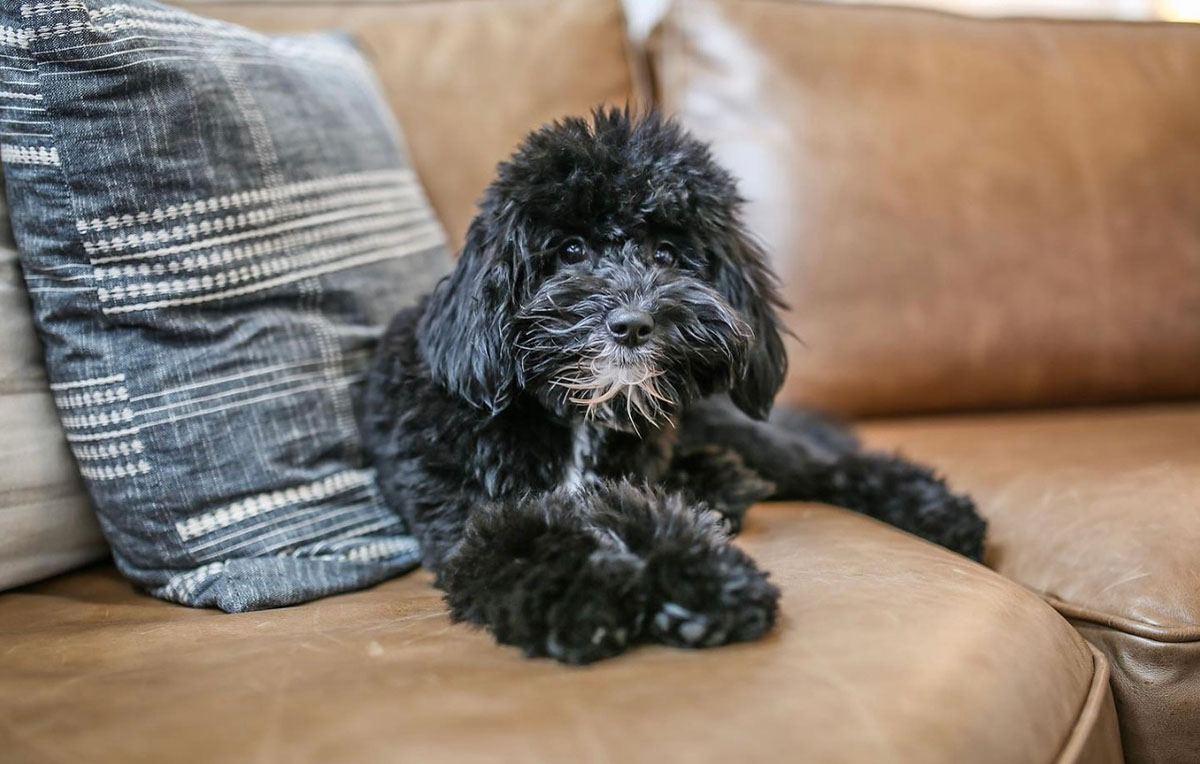
The more things change…
In our experience, we used to make judgments and say this puppy is the most outgoing, or that puppy is the most laid back, curious, or whatever. Then, after the family left us and took their new puppy home, the tendency could flip flop. The most passive puppies could end up being super outgoing, or the strong minded become really chill. How could that be?
The personality of a puppy in a litter dynamic often changes in a new environment. Especially when coming from a larger litter to being the Only Pup, there is significantly less competition and the puppy is free to develop his own personality. Your home will be completely different from ours. Also, as a puppy matures, his attitude and outlook can, and often do, evolve. He changes on the outside AND on the inside.
Choosing up sides
Frequently we hear people say, ‘I want to come and see the puppies in person so I can let them choose me.’ This is not a good idea, and here’s why.
Puppies are babies without any worldly experience at all. Their main focus is eating, sleeping, pooping and Mom. They’re easily distracted. You could visit in the morning and puppy A might be totally enthralled and engaged with you. Come back a few hours later, and puppy A will be napping in the corner, ignoring you completely. But puppy B might decide he’s going to be your new best friend, for now anyway.
Neither puppy ‘chose’ you. A particular puppy just happened to engage more with you at that moment. They simply don’t have the attention span to make a rational decision. And they have no experience in building a relationship outside their littermates.
As far as temperament goes, and predictability, a puppy at 6 to 7 weeks old will have a different personality than he’ll have at 2 years old. (Or next week, even.) Maturing, family bonding, and experience will help his adult self to evolve. Just like children, they come to you as babies. You just can’t usually tell at that age what their temperament will be.
You’re really the one in charge.
So, you are free to tailor it to shape your new family member’s personality and skills as you wish. Want a cuddlebug? Read to him curled up on the sofa (I’m serious! He wants the sound of your voice.). Prefer an outdoor athlete? Take him outside for a rousing game of tag, or a hike, or teach him to track. Need a guard dog? Be careful with this one. There are so many sources of misinformation on how to train for protection that you’ll want to make sure you’re taking the advice that will be best for you and your dog.
With breeds and purpose-bred dogs (hounds and herding dogs, for example), you have a very general idea of what to expect. Specific personality traits, however, are up for grabs. We get requests all the time for certain tendencies. Maybe people want a puppy who is calm at home, but always ready to go kayaking or keep up in a marathon. Sorry, but there’s no way to predict that. You’ll have to take responsibility for steering his temperament in those directions.
However – we make videos of our puppies frequently, so you can watch how they grow. And we post updates on our Facebook page and also our Maple Hill Doodles Instagram page. Follow along!
Whatever you see in your puppy’s future, be aware that as life changes, his path may detour as well. Help him to be able to adjust. When you look at his adorable little face, may it always be looking back at you with love.

